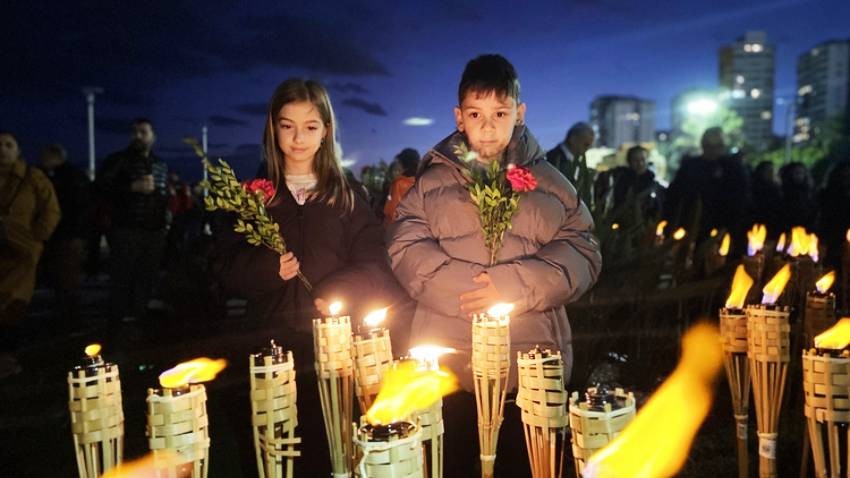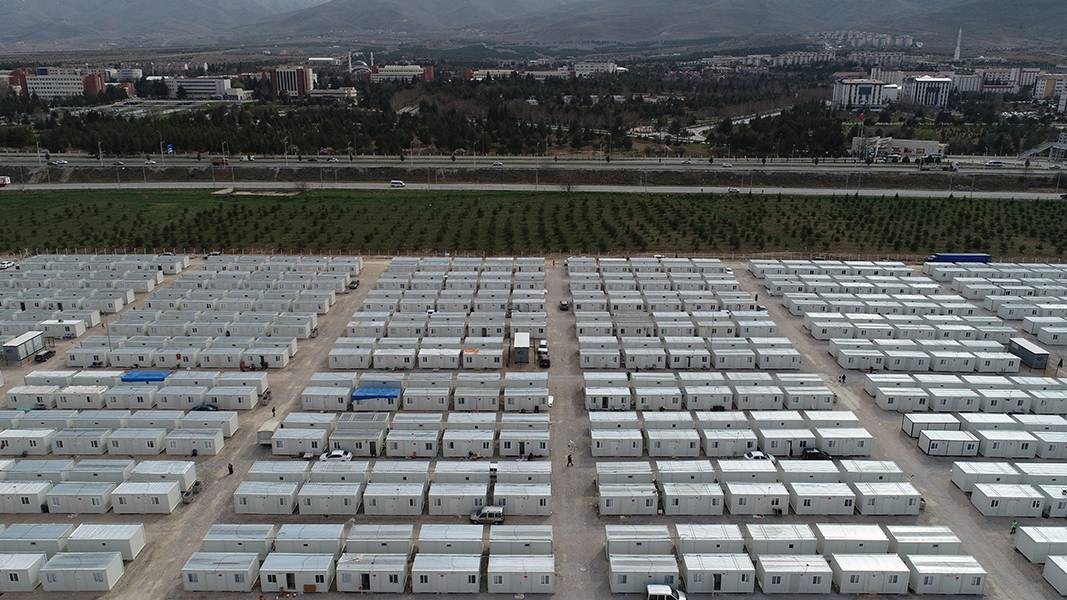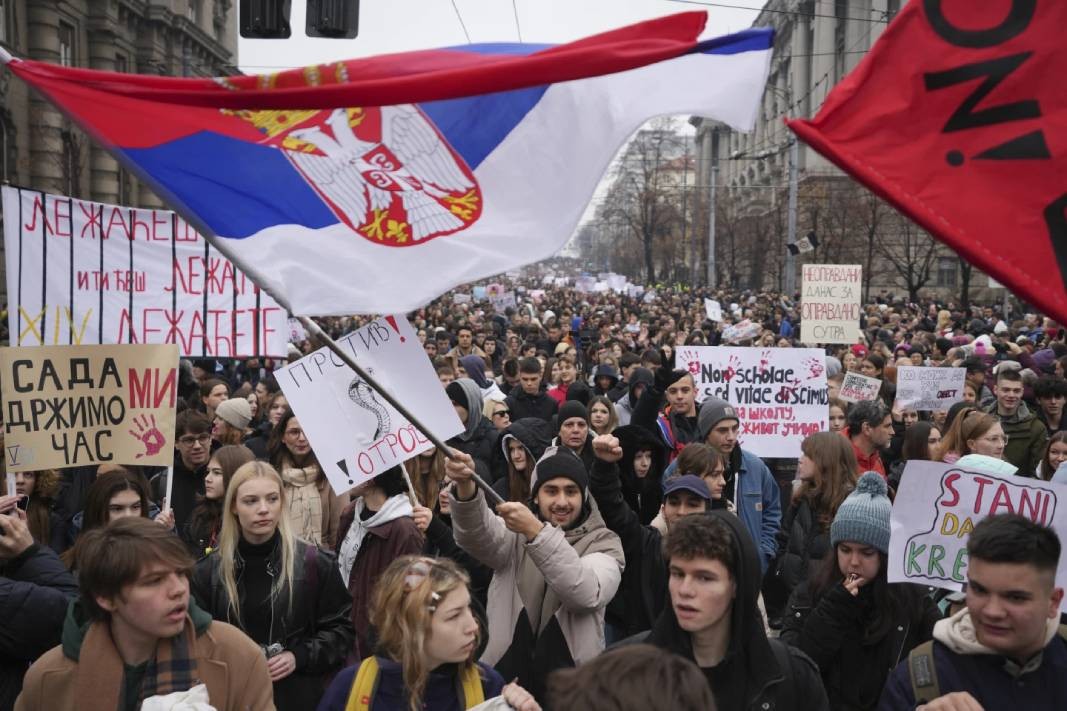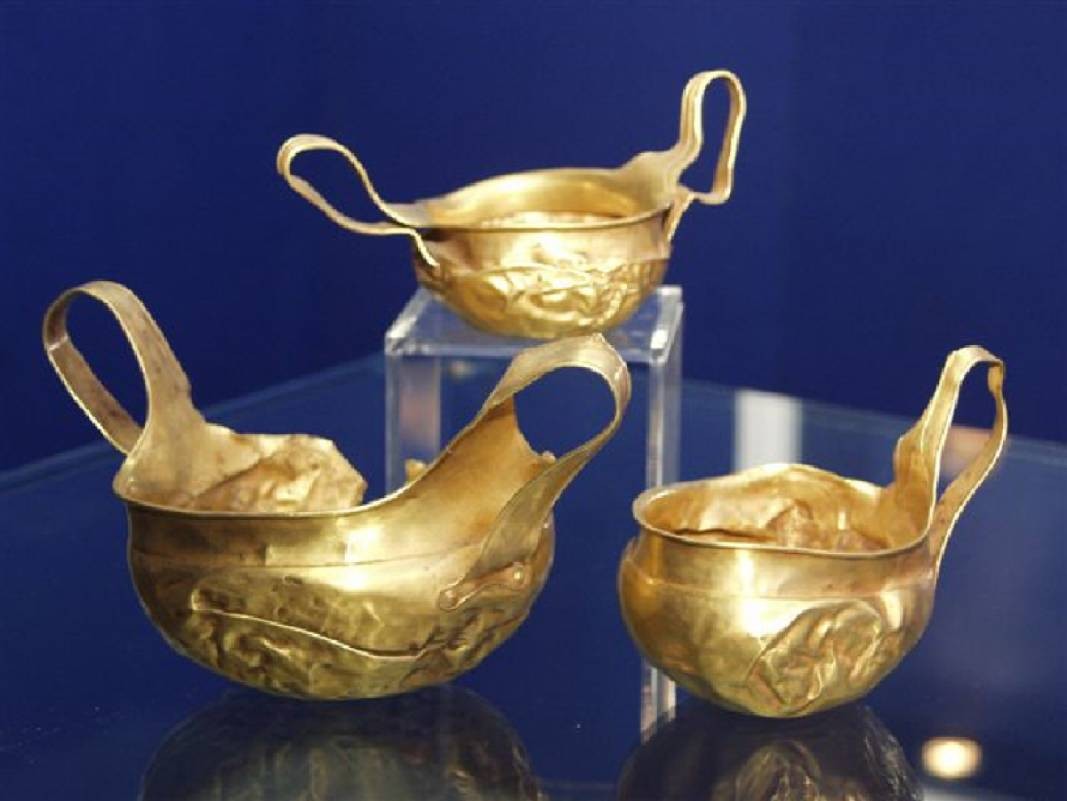Türkiye commemorates the victims of the devastating earthquakes of 2023

Türkiye honored the memory of the victims of the earthquakes of February 6, 2023, when 7.7-magnitude tremors in southeastern Turkey levelled entire cities. Nearly 54,000 people died and more than 107,000 were injured. On February 6, many citizens gathered for a vigil at exactly 4:17 a.m. local time (the time of the first devastating earthquake) in the affected districts to honor the memory of the dead, BTA reported. Silent processions were organized in many places. People walked through the empty spaces where their homes used to be. Mourners carried photos of the dead and posters with the inscriptions "We have not forgotten," the Hurriyet newspaper wrote.
"Bulgaria stands in solidarity with the Turkish people and their efforts for recovery and reconstruction, providing assistance in the amount of over 2.2 million euros," the Bulgarian embassy in Ankara wrote on Facebook.

Many of those who lost their homes are still living in vans and container houses. Turkey has set a goal for them to be accommodated in new homes by the end of 2025, BNR’s Maria Petrova reported.
"What the Turkish authorities have done is a lot. Billions have been invested. International organizations are also allocating funds for recovery. The biggest problem is the scale of the disaster. It will take dozens of years to restore this area," Nora Cholakova, BTA correspondent in Türkiye, has told BNR.
Third month of protests in Serbia

Student-led protests in Serbia continue for a third month. They started after the collapse of a concrete canopy at the Novi Sad train station, which killed 15 people. The protesters are guarded by police and applauded by many citizens. The public discontent led to the resignations of Serbian Prime Minister Miloš Vučević and Novi Sad Mayor Milan Đurić. However, the tension has not subsided.
Serbia will either have a new government by March 19-20, or early parliamentary elections will be held. This was what Serbian President Aleksandar Vučić told the state television RTS, BGNES reported. According to him, the parliament must vote on the resignations of the government and Prime Minister Miloš Vučević by February 17 or 18, which means that from then on a 30-day period will begin for the formation of a new government or the calling of elections in early May. These are the only two possible options set out in the Constitution. "We must try to form a good government, because this is terribly important and also because of the EXPO 2027 world exhibition in Belgrade," Vučić also said.
Wave of boycotts of retail chains in the Balkans

The call for boycotting supermarkets on a certain day due to high prices, launched by Croatia, has also spread to other Balkan countries - Bosnia and Herzegovina, Serbia, Montenegro, North Macedonia. Bulgaria is also to join them on February 13. In Romania, the far-right independent presidential candidate Călin Georgescu called for a boycott of chains on February 10 and for buying only Romanian goods. In Greece, February 19 has been declared a day without shopping in retail chains. The protest is organized by the INKA General Consumers Federation of Greece, which has previously organized similar boycotts.
Greece has a law in force prohibiting higher profits on essential goods compared to 2021. But, despite inspections and fines, traders continue to raise prices, Greek citizens say. According to data from the Greek Research Institute of Retail Consumer Goods, prices in January 2025 are at the same level as the same month last year. Despite this, people claim that everything is too expensive and unaffordable even for the middle class, BNR correspondent Katya Peeva reported from Greece.
3,000-year-old gold artefacts were displayed for years in Romanian school hallway

Nearly 3,000-year-old gold artefacts were exhibited for years in a museum collection in a Romanian school because their true historical and material value was unknown, Agerpress has reported. The story from the 1960s is recalled by Dr. Vasile Diaconu from the National Museum Complex in Neamt, northeastern Romania, in the backdrop of the scandalous theft of priceless Romanian archaeological finds from the Drents Museum in Assen, the Netherlands, at the end of January.
The artifacts were discovered in 1965-1966 during agricultural work near the village of Radeni and then displayed in a glass-free display case in the hallway of a local school. The were thought to be made of brass and not that old. It was not until 1977 when archaeologist Virgil Mihailescu-Barliba visited the school and noticed the priceless finds, BTA reported. They date back to the 12th-11th centuries BC. Diaconu points out that the only analogues of the Radeni artifacts were found in Valchitran, Bulgaria and in Krizhovlin, Ukraine. Today they are in the Neamț Museum and in the collections of the National History Museum of Romania and the National Bank. Some of the artifacts from Radeni were presented in the exhibition at the Drents Museum in the Netherlands.
Compiled by: Miglena Ivanova
Publication in English: Al. Markov
Photos: aa.com.tr, apnews.com, EPA-EFE, Facebook/ Vasile Diaconu
“We Continue the Change–Democratic Bulgaria” (PP-DB) has tabled a vote of no confidence against the government of Rosen Zhelyazkov in the “Justice and Internal Order” sector, BGNES reported. “We see not just a failure, but a systemic refusal..
In an article published by POLITICO , Sofia Mayor Vasil Terziev and Athens Mayor Haris Doukas called on European institutions to take a clear stance in defense of democracy in Turkiye, the Sofia Municipality press center reported. The..
Following the split within the Movement for Rights and Freedoms (DPS), Ahmed Dogan has announced the creation of a new political party - Alliance for Rights and Freedoms (APS). Democracy, Rights and Freedoms – DPS has been renamed to Alliance for..

+359 2 9336 661
